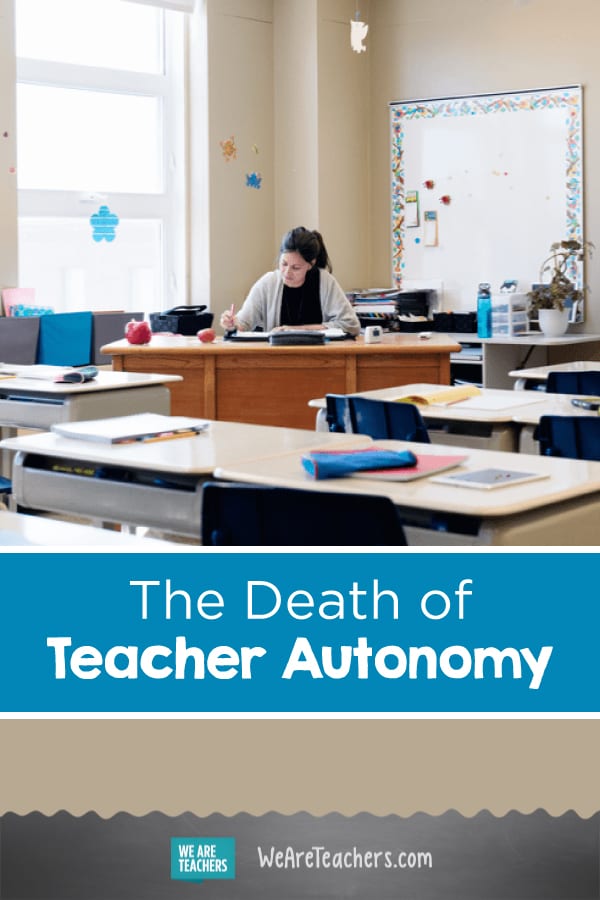Once, there was a time when a teacher, regardless of grade level, could plan lessons for the classroom that were unique, creative, and engaging. Once hired, administrators trusted the teacher to come up with their own ideas on how to implement the curriculum. As long as their students were successful and actively learning, they were left to their own devices. I can still remember a principal in the 1990s saying, “Here are the books. Use them as you wish.”
Sadly, in classrooms all across country, that teacher autonomy has all but disappeared.
Consult any poll about why teachers leave the profession and the loss of autonomy ranks up there as one of the reasons, along with lack of respect and work stress. Those reasons go hand in hand. If teachers were respected as professionals, one would think, they would be given the green light to independently do their own lesson plans. They could do pet projects that make their class special—like author teas, publishing stories, singing songs to other classes, or presenting class plays complete with costumes and props. They could team up with other teachers more often to do projects generated from conversations they initiated themselves.
[contextly_auto_sidebar]
It’s becoming increasingly difficult to “squeeze in” activities like these in the days of standardized testing and data collecting.
Now there is team planning, unit planning, and curriculum mapping with instructional coaches, along with seven-point lesson plan expectations, and requirements to list objectives and learning targets on the board. In some school districts, students as young as the primary grades have to state the criteria of evaluation for each lesson and write personal goals for their next assessment. Then there are the computer programs that do much of the teaching and assessing. And teachers must plan their lessons around the results.
This is not to say that technology is a bad thing, of course.
If used appropriately, it can enhance a teacher’s instruction and make learning more fun. But gone are the halcyon days when a teacher had control over what those programs could be. Everything is controlled by testing and chosen by a bureaucracy that, though well-intentioned, made the decisions for the teachers before the teachers could even gauge what was best for their students from their own observations. Assessment, in itself, is not the problem. But standardized assessments don’t do anything to get kids to love reading and math. It’s a teacher’s individual approach that often works the magic of motivating students to learn.
So here’s a suggestion that might be a little crazy, but worth considering.
Maybe autonomy could be offered as a type of incentive. After a year of teaching, if students are meeting standards, teachers could make more choices on their own. The prize of autonomy just might be worth more than money to some—and might even save the careers of others.
We’d love to hear your thoughts on teacher autonomy. Come and share in our WeAreTeachers HELPLINE group on Facebook.
Plus, 9 things teachers need if the U.S. ever wants another globally competitive generation.


